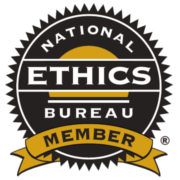What You Can Do With a Will
A will is often the cornerstone of an estate plan. Here are five things you may be able to accomplish with a will.
Distribute Property as You Wish
Wills may enable you to leave your property at your death to a surviving spouse, a child, other relatives, friends, a trust, a charity, or anyone you choose. There may be some limits, however, on how you can distribute property using a will. For instance, your spouse may have certain rights with respect to your property, regardless of the provisions of your will.
Transfers through your will usually take the form of specific bequests (e.g., an heirloom, jewelry, furniture, or cash), general bequests (e.g., a percentage of your property), or a residuary bequest of what’s left after your other transfers. It is generally a good practice to name backup beneficiaries just in case they are needed.
Note that certain property may not be transferred by a will. For example, property you hold in joint tenancy or tenancy by the entirety may pass to the surviving joint owner(s) at your death. Also, certain property in which you have already named a beneficiary may pass to the beneficiary (e.g., life insurance, pension plans, IRAs).
Nominate a Guardian for Your Minor Children
In many states, a will may be your only means of stating who you want to act as legal guardian for your minor children if you die. You may be able to name a personal guardian, who takes personal custody of the children, and a property guardian, who manages the children’s assets. This can be the same person or different people. The probate court may have final approval, but courts will usually approve your choice of guardian unless there are compelling reasons not to.
Nominate an Executor
A will may allow you to designate a person as your executor to act as your legal representative after your death. An executor carries out many estate settlement tasks, including locating your will, collecting your assets, paying legitimate creditor claims, paying any taxes owed by your estate, and distributing any remaining assets to your beneficiaries. As with naming a guardian, the probate court may have final approval but will likely approve whomever you nominate.
Specify How to Pay Estate Taxes and Other Expenses
The way in which estate taxes and other expenses are divided among your heirs is generally determined by state law unless you direct otherwise in your will. To ensure that the specific bequests you make to your beneficiaries are not reduced by taxes and other expenses, you may be able to provide in your will that these costs be paid from your residuary estate. Or, you may be able to specify which assets should be used or sold to pay these costs.
Create a Testamentary Trust or Fund a Living Trust
You may be able to create a trust in your will, known as a testamentary trust, that comes into being when your will is probated. Your will typically sets out the terms of the trust, such as who the trustee is, who the beneficiaries are, how the trust is funded, how the distributions should be made, and when the trust terminates. This can be especially important if you have a spouse or minor children who are unable to manage assets or property themselves.
A living trust is a trust that you create during your lifetime. If you have a living trust, your will may be able to transfer any assets that were not transferred to the trust while you were alive. This is known as a pourover will because the will “pours over” your estate to your living trust.
Caveat
Generally, a will is a written document that must be executed with appropriate formalities. These may include, for example, signing the document in front of at least two witnesses. Though it may not be a legal requirement, a will should generally be drafted by an attorney.
There may be costs or expenses involved with the creation of a will or trust, the probate of a will, and the operation of a trust.
For more information on Wills and Living Trusts, please give us a call at 775-674-2223 and we can put you in touch with our Estate Planning Attorney.
Disclaimer: The above information is not legal advice and you should consult an attorney for legal advice.

